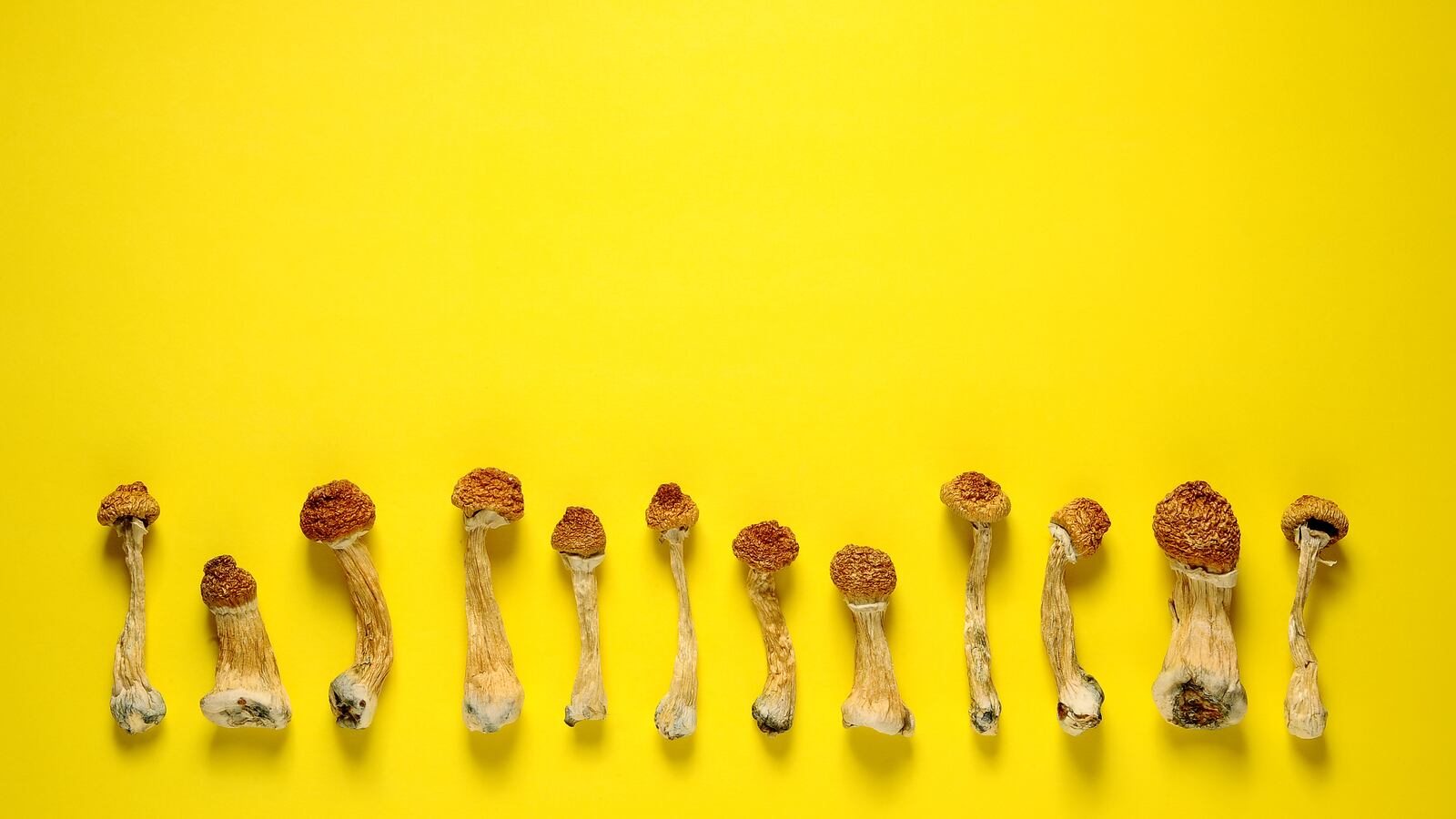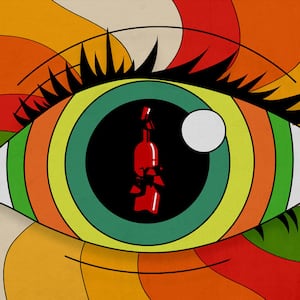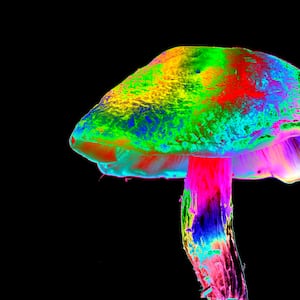In one of the biggest studies ever run to examine the relationship between psychedelics and mental health therapy, researchers from NYU have found that psilocybin—more commonly known as magic mushrooms—is incredibly effective at treating alcohol use disorder.
The study—which was published on August 24 in the journal JAMA Psychiatry and is the first of its kind to involve a placebo-controlled trial—recruited 93 participants with alcohol dependence. The volunteers who received two doses of psilocybin combined with psychotherapy saw an 83 percent reduction in heavy drinking days within eight months of treatment. Meanwhile, those who received an antihistamine placebo paired with psychotherapy only saw a 51 percent reduction.
Most encouragingly, 48 percent of volunteers who received the magic mushroom treatment stopped drinking entirely after the eight months, whereas just 24 percent of the placebo group stopped drinking altogether.
It should be noted though that all participants received 12 psychotherapy sessions that occurred before and after they were given their drug—so they weren’t just tripping on their own. They were all also offered a third psilocybin session to make sure that even volunteers who received a placebo had the opportunity to be treated with the psychedelic.
“Our findings strongly suggest that psilocybin therapy is a promising means of treating alcohol use disorder, a complex disease that has proven notoriously difficult to manage,” Michael Bogenschutz, a psychedelics researcher at NYU and senior author of the study, said in a press release.
The findings offer a lot of promise to the 107 million people who struggle with alcohol use disorder every day—especially when you compare the results to common treatments for alcoholism. For example, Alcoholics Anonymous has an incredibly low success rate of between 8 and 12 percent by some estimates. Meanwhile, FDA approved medications like naltrexone can result in unwanted side effects like intense nausea and exhaustion.
Bogenshutz previously led a smaller study with the University of New Mexico into the efficacy of magic mushroom-assisted therapy to treat alcoholism in 2015. That one involved just 10 volunteers with alcohol use disorder who were given a single orally administered dose of psilocybin. However, the study saw a 40 to 60 percent drop in alcohol use and dependence. Interestingly, the study found that the people who had more intense trips saw greater benefit from the treatment.
This latest NYU study further underscores the evidence that psilocybin not only can treat alcoholism when paired with psychotherapy, but it can be incredibly effective as well—an idea that more and more experts in the field are starting to embrace. And while it might seem strange to fight drug addiction with another drug, the study’s authors believe magic mushrooms have promise to treat a wide gamut of substance abuse issues.
“As research into psychedelic treatment grows, we find more possible applications for mental health conditions,” Bogenschutz said. “Beyond alcohol use disorder, this approach may prove useful in treating other addictions such as cigarette smoking and abuse of cocaine and opioids.”
The new study will only serve to bolster emerging efforts to capitalize on magic mushroom’s potential to treat alcohol use disorder. Clairvoyant Therapeutics, a biotech startup based in Vancouver, is planning to launch a Phase 2 clinical trial of a new study into psilocybin-assisted therapy to treat alcoholism. That one will include 128 patients.
Bogenschutz and his team now plan to build off of this study and conduct a similar, larger trial. But he stresses that more research is needed in order before we see magic mushrooms in a diagnostic and clinical setting. However, there’s no doubt that—despite its reputation as a hippy-dippy drug—it has the potential to help the millions who suffer from alcoholism every day… one trip at a time.







